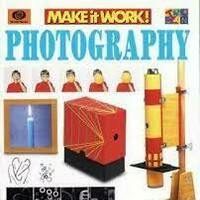Search
Books+
Searching 1,730 books
Search related to the career Astronomer
Astronomers typically work in the following settings:
1. Research Institutions and Universities: Many astronomers work in research institutions and universities where they conduct research, analyze data, and publish scientific papers. They may also teach astronomy courses to students.
2. Observatories: Astronomers often work in observatories, which can be ground-based or space-based. They use telescopes and other instruments to observe celestial objects and collect data for their research.
3. Space Agencies: Some astronomers work for space agencies such as NASA or ESA. They may be involved in designing and operating space telescopes, analyzing data from space missions, or conducting research related to space exploration.
4. Planetariums and Science Museums: Astronomers may work in planetariums or science museums, where they educate the public about astronomy through presentations, exhibits, and interactive programs.
5. Government Agencies: Astronomers may work for government agencies that fund and support scientific research. They may be involved in policy-making, managing research grants, or providing scientific expertise.
6. Private Sector: Some astronomers work in the private sector, particularly in companies that develop and manufacture astronomical instruments or provide data analysis services for space missions and research projects.
7. Non-profit Organizations: Astronomers may work for non-profit organizations that promote scientific research, education, and public outreach in the field of astronomy.
8. Collaborative Projects: Astronomers often collaborate with colleagues from different institutions and countries on research projects. They may work remotely or travel to various locations for observations, conferences, and collaborative work.
9. Academic Journals and Publications: Astronomers may also work as editors or reviewers for academic journals and publications, where they contribute to the peer-review process and help disseminate scientific knowledge.
10. Computer Laboratories: With the increasing reliance on computational methods and simulations in astronomy, astronomers often work in computer laboratories, where they analyze data, develop models, and run simulations to understand various astronomical phenomena.
It's important to note that astronomers may work in a combination of these settings depending on their specific research interests and career paths.
Source: Various AI tools






















































